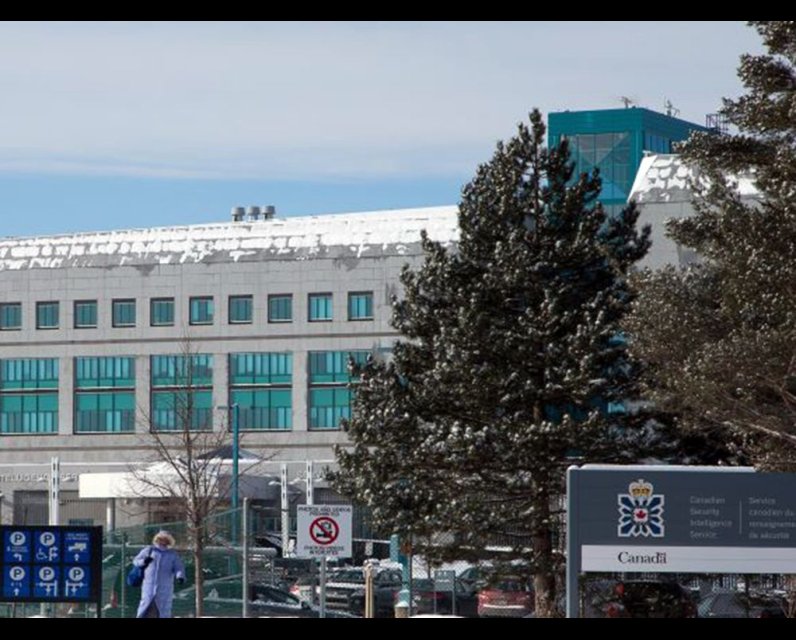Intelligence watchdogs ask Carney to spare them from federal budget cuts as security agencies grow

OTTAWA — Canada’s intelligence watchdog agencies have asked the Liberals to spare them from public service cuts in Tuesday’s budget , warning that the organizations they are supposed to keep an eye on are only set to become more powerful.
In an exceptional joint letter to Prime Minister Mark Carney, Canada’s two largest intelligence watchdogs warned in July they would not be able to oversee as effectively the intrusive operations and powers of surveillance of security agencies, including CSIS and the RCMP, if their funding is cut in Tuesday’s budget.
That’s because both review bodies, as well as the office of the intelligence commissioner, were included in the government’s spending review requiring them to propose ways to cut their spending by 15 per cent from their budgets within three years.
“We maintain a pivotal equilibrium vis-à-vis the extensive authorities vested in the national security apparatus,” reads the letter signed by both the National Security and Intelligence Committee of Parliamentarians (NSICOP) secretariat and the National Security and Intelligence Review Agency (NSIRA).
“Absent maintaining our current funding levels, our ability to keep pace and sustain a proportional level of scrutiny will be seriously hindered,” they added.
National Post obtained a redacted version of the letter via access-to-information legislation.
NSIRA and NSICOP are the two bodies tasked with reviewing intelligence work done by nearly any federal organization such as CSIS, the Communications Service Establishment, the RCMP, the Canadian Armed Forces and National Defence.
Most federal national security organizations have been spared from major cuts the Carney government is considering for the public service.
In fact, the Liberals have promised to significantly increase many of their budgets as part of their plan to boost spending on defence and national security.
Government bill C-2 also proposes granting police and security agencies new powers to obtain information from service providers without a warrant. It would also create a lawful access regime to make it simpler for authorities to obtain private communications with a warrant.
Craig Forcese, the vice-chair of NSIRA, said that would make cuts to the watchdog agencies more problematic.
“The reality is, with less, we will do less, and this is at a time when we’re seeing a surge in our complaints (and) the prospect of new and novel powers” for intelligence and defence agencies, Forcese said.
He said his organization has not received a response to the letter from the prime minister.
NSIRA’s budget is currently less than $18 million annually, while that of NSICOP’s secretariat is below $4 million. CSIS’s budget is over $700 million while budgets are in the billions or tens of billions of dollars for RCMP, military and defence.
In their letter, NSIRA and NSICOP warned against a return to the “imbalance” seen in the 2000s when intelligence services operated without matching oversight.
“We witnessed security service activities ignite public controversy and provoke the creation of expensive ad hoc judicial commissions of inquiry,” they wrote.
The federal government held numerous public or internal inquiries into national security issues between 2000 and 2009, such as the Mahrer Arar and Air India commissions and at least three major internal inquiries related to intelligence and police work.
The review bodies also wrote in the letter that the cuts would be an assault on their independence and directly impact services to the public.
“The practical reality is that in our micro-organizations the prescribed budget cuts are more likely to be disproportionately linked to reduced delivery on our mandates, such as fewer reviews being conducted,” they wrote.
“For the adjudication of public complaints, less resources will mean jeopardizing access to justice,” they added. “The result will likely be long queues and delays.”
In their six to eight years of existence, both watchdogs have published consequential reviews of Canada’s security and intelligence apparatus.
For example, NSICOP published a bombshell report on foreign interference in Canada last year. And earlier this month NSIRA reported that CSIS had failed to disclose the use of new “intrusive” technology to the proper authorities.
NSICOP secretariat executive director Lisa-Marie Inman said a 15 per cent cut to her department would save the government roughly $525,000 but could impact how it operates. NSIRA said that a similar cut in its budget would save roughly $2.7 million, which it said is a marginal amount of federal spending.
“The economic benefit to the Government is far outweighed by the negative impact on NSIRA’s ability to fulfill its mandate and the heightened risks to national security, intelligence and defence activities,” NSIRA wrote in the letter.
The agencies also noted in their letter that similar organizations within the public service have been told they will be exempt from cuts, including the Office of the Auditor General and the Office of the Parliamentary Budget Officer.
In a separate statement, a spokesperson for Intelligence Commissioner (IC) Simon Noël confirmed that his office was also included in the comprehensive expenditure review, but hoped to be spared.
“I can confirm that the IC has expressed concerns relating to the impact of implementing the full savings target,” said Office of the Intelligence Commissioner executive director Justin Dubois.
The intelligence commissioner holds the rare responsibility of overseeing spy agencies’ powers. His role is to approve or reject the use of some of intelligence organizations’ most intrusive or law-breaking powers.
A spokesperson for Finance Minister François-Philippe Champagne acknowledged receipt of questions from National Post but did not provide a response by deadline.
National Post cnardi@postmedia.com
Our website is the place for the latest breaking news, exclusive scoops, longreads and provocative commentary. Please bookmark nationalpost.com and sign up for our newsletters here.



Comments
Be the first to comment